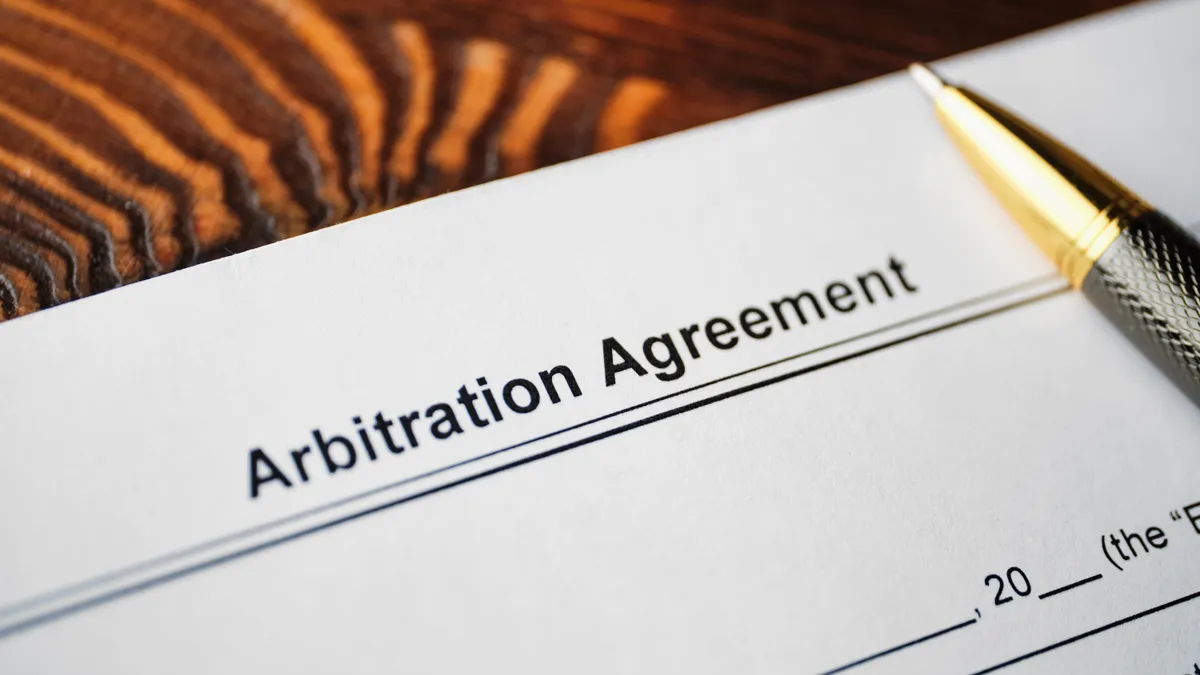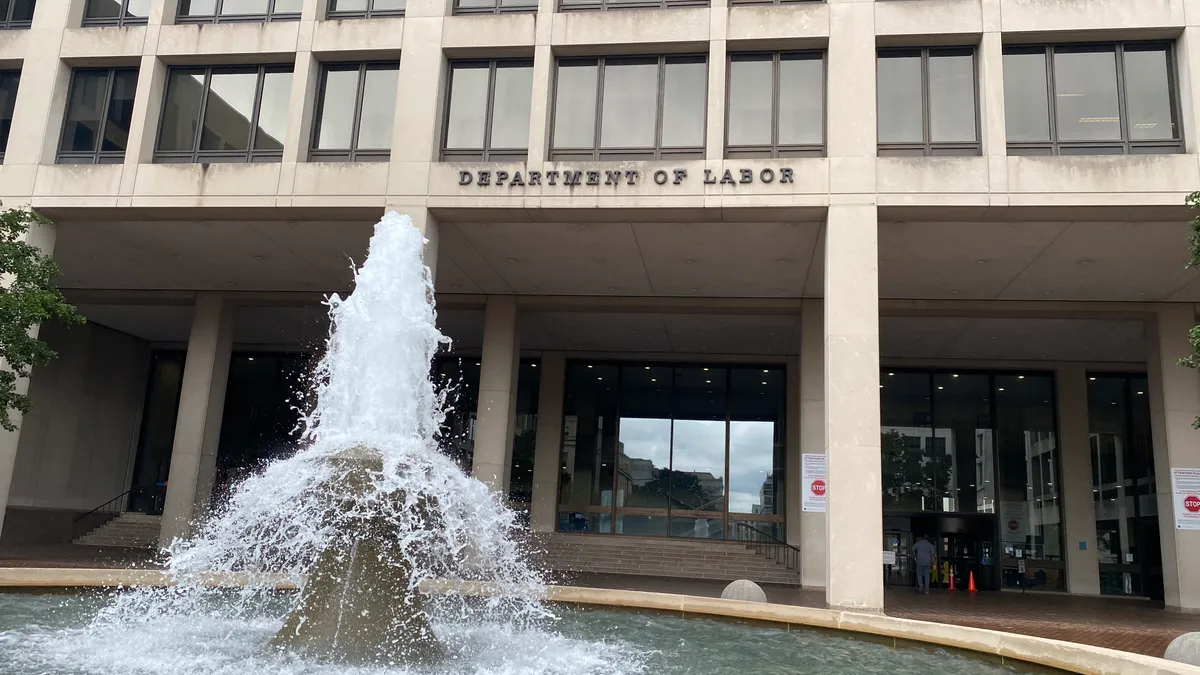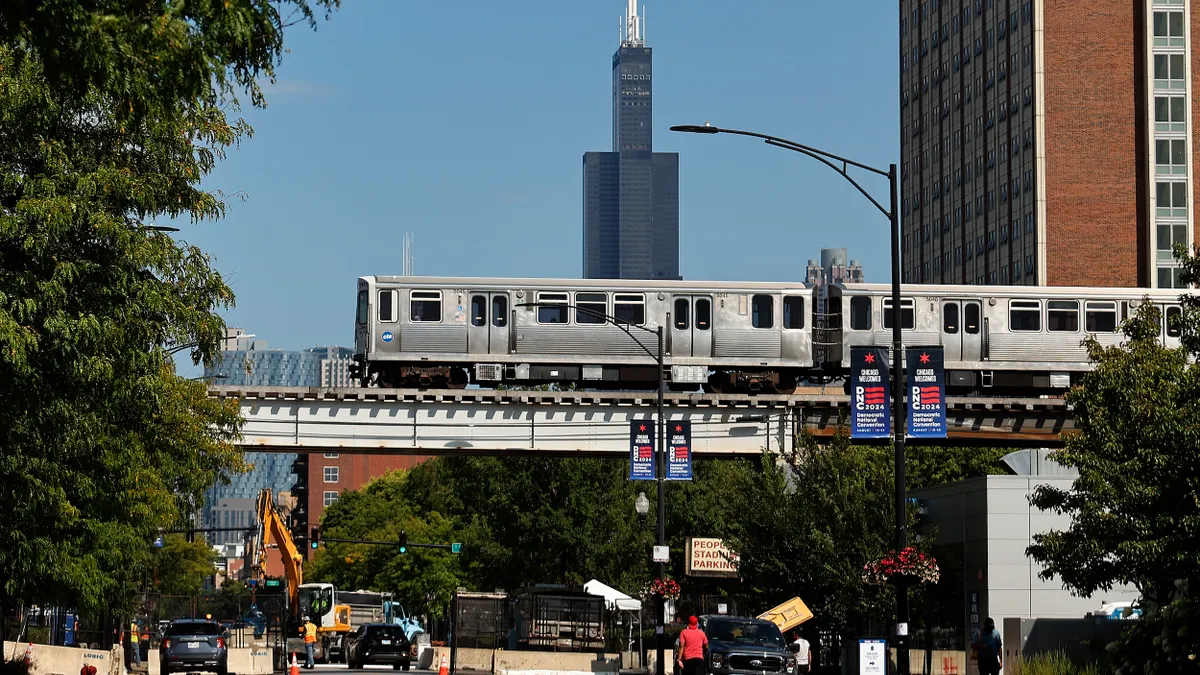The U.S. Senate, by voice vote alone, voted Feb. 10 to pass the Ending Forced Arbitration for Sexual Assault and Sexual Harassment Act, also called the #MeToo bill. Earlier that week, a version of the bill passed the House in a similarly sweeping 335-97 vote. The swift, bipartisan movement through Congress was a strong action of censure for one use of a corporate practice that many learned about in the wake of #MeToo: forced or mandatory arbitration.
As its name suggests, the recently passed bill — which President Joe Biden is expected to sign any day — only applies to claims of sexual assault and sexual harassment. It invalidates arbitration agreements that prevent the claimant from filing a lawsuit and seeking redress in court.
While the bill's text may be straightforward and concise, its passage has garnered major, mostly positive attention politically and in the media. Sen. Kirsten Gillibrand, D-N.Y., one of the bill's co-sponsors, called it "one of the most significant workplace reforms in American history." Time Magazine referred to it as a "#MeToo milestone."
With such significant support for ending one aspect of mandatory arbitration, are other uses for the process next on the chopping block?
A brief history of mandatory arbitration
Before exploring where it stands now, it's worth noting how mandatory arbitration became so commonplace for employers. The practice emerged from the Federal Arbitration Act, legislation from 1925 that allows for private dispute resolution outside the judicial system through arbitration. Often, this practice is used between businesses as a cheaper and faster alternative to court-provided resolutions.
In 1991, the U.S. Supreme Court issued Gilmer v. Interstate/Johnson Lane Corp., a landmark decision upholding the enforceability of an arbitration clause between an employer and an employee with age discrimination claims. This paved the way for employers to require employees to sign arbitration agreements — or employment contracts with mandatory arbitration clauses — to avoid use of the legal system.
This decision was a game changer for employers. Due to the privacy of arbitration, data can be hard to come by. According to an estimate from the Economic Policy Institute, a left-leaning think tank, however, the share of workers subject to mandatory arbitration rose from just over 2% in 1992 to roughly one-quarter of the workforce by the early 2000s. Per the same analysis, the share of workers subject to mandatory arbitration now exceeds 55%.
In 2018, the Supreme Court ruled on Epic Systems Corp. v. Lewis, finding that arbitration agreements that require individual arbitration are enforceable under the Federal Arbitration Act. The decision allows employers to restrict workers from filing class action lawsuits and instead require that they pursue claims individually through arbitration.
How it works
Employees (or former employees) who decide to use arbitration typically will approach company leadership or an HR representative, who will direct them to file a claim. Two arbitration organizations dominate in the employment arbitration space: the American Arbitration Association and JAMS Mediation, Arbitration and ADR Services.
If an employee first attempts to sue — many workers do not initially realize they signed mandatory arbitration agreements — the company will usually respond with a motion to stay the case due to the arbitration clause. The court will then either stay the case until the arbitrator reaches a decision or dismiss the case outright, Aaron Goldstein, partner at Dorsey & Whitney, told HR Dive.
The process that unfolds after that tends to look like a slightly less formal version of a legal proceeding, minus the jury. Usually there is a single arbitrator, but in more complex cases, there may be a panel. The claimant and employer each file statements.
"The next step is usually to have some amount of discovery, like you would [have] in a court," Goldstein said, such as gathering depositions from witnesses and requesting and gathering documents. "Frequently, that process will be a little more streamlined [than in court], and the arbitrator will work with the parties to come up with an appropriate discovery plan for the particular case."
The discovery process works toward an arbitration hearing, which involves one to two days of argument and testimony. Then the arbitrator hands down a decision.
While the arbitration process tends to take less time than the judicial route, it can still be lengthy. "I think getting something resolved within a year is pretty typical," Goldstein said. "Often, you shoot for shorter. It's just that reality often encroaches [with] scheduling people's depositions … people get busy."
Finally, the arbitrator issues a decision — typically, if the arbitrator finds in the employee's favor, a cash settlement of some kind.
The backlash
Arbitration can have many benefits for the employer — privacy and cost effectiveness being perhaps the most notable. But the process has also drawn scrutiny and criticism from worker advocacy groups and other political organizations, and not only in cases of sexual harassment and sexual assault.
The power differential is one factor in worker advocates' complaints. When two businesses come together and form an arbitration agreement, they tend to be equals, or equally free to enter into the agreement. There is more likely to be an element of negotiation.
But workers have historically been more dependent on a job offer than the employer is dependent on them. "Who would risk a valuable job opportunity … over an obscure procedural provision?" EPI questioned in a briefing paper on the topic. As "mandatory" arbitration implies, a worker likely loses out on an offer if they refuse to sign such an agreement, or at least must weigh the risk of doing so.
Opponents of the practice also argue that arbitrators are incentivized to find in employers' favor, due to employers holding the contracts and the potential for repeat business. "Research has found that employees are less likely to win arbitration cases and they recover lower damages in mandatory employment arbitration than in the courts," wrote Alexander J.S. Colvin, author of the EPI report and professor of conflict resolution at Cornell's Industrial and Labor Relations School.
Arbitration can further be interpreted as a DEI issue: EPI has noted that women and Black workers are more likely to be subject to the practice.
"There's what I would call the old, dark playbook: Keep it quiet, pay people off and move on. And then there's the new playbook, which is the only playbook as far as I'm concerned: Act quickly, act decisively, act publicly. So you don't have any dirty laundry."

Aaron Goldstein
Partner at Dorsey & Whitney
Is there an 'ideal' form of arbitration?
One of the more pernicious aspects of many arbitration agreements is the added use of nondisclosure agreements, Goldstein said. Such policies require claimants to maintain silence about their experience as part of their agreement. Goldstein counsels employers not to use nondisclosure agreements, in part because they're "such a bad PR hit."
"There's what I would call the old, dark playbook: Keep it quiet, pay people off and move on," Goldstein said. "And then there's the new playbook, which is the only playbook as far as I'm concerned: Act quickly, act decisively, act publicly. So you don't have any dirty laundry."
In cases of harassment, retaliation and other law-breaking, for example, employers can protect themselves by following established best practices: investigating claims, disciplining (and sometimes removing) the offending workers and reiterating company policies.
The use of nondisclosure agreements can also result in hefty payouts, particularly if the claimant happens to have more resources and be well represented. Goldstein noted this can occasionally lead to seemingly ironic support of NDAs by claimants' legal representatives, as it can allow their clients to collect a larger award. While a company may appreciate avoiding a PR catastrophe in the wake of a scandal — and may have deep pockets — NDAs can also be used to protect predators and sustain a toxic culture, which rarely remains in the shadows for long.
Though mandatory arbitration tends to be publicly unpopular and yet still a route many employers take, the story of arbitration itself is more complicated than it may seem. There are reasons employees would choose to use arbitration, and also reasons employers may not want to.
"In the not-so-distant past, I represented plaintiffs myself, and there are some instances where plaintiffs want privacy — the privacy of arbitration," Christie Del Rey-Cone, partner at Mitchell Silberberg & Knupp, told HR Dive. "There are some instances [in which] they don't want their story to be publicly accessible for any variety of reasons that make a lot of good sense."
On the other hand, employers who go the route of arbitration lose out on the opportunity to have the employee's complaint dismissed on summary judgment — upon judicial review, without a full trial, and often quickly. Summary judgment dismissals are extremely common in employment law cases; one 2013 analysis found summary judgment was granted, in whole or in part, in 77% of employment discrimination cases, for example.
Arbitration cases typically do not use summary judgment because there's no jury, Goldstein said. Arbitrators figure they "might as well have a hearing." Going all the way to an arbitration hearing when summary judgment might have been the alternative can sometimes be "as expensive and inefficient as going to court," Kevin White, partner at Hunton Andrews Kurth, told HR Dive.
Employers that are concerned about fairness, talent retention, DEI and public reputation can choose to dispense with mandatory arbitration altogether, giving employees a choice in how they manage complaints. Google ended the practice in 2019, for example.
Companies hesitant to pull the policy entirely could follow Goldstein's advice and end the use of nondisclosure agreements.
What comes next?
#MeToo was a once-in-a-lifetime movement, so does it stand to reason that the political and social push to eliminate mandatory arbitration will end with cases of sexual assault and sexual harassment?
It's hard to say.
Many members of the Democratic party have signaled a broader interest in ending the practice entirely. Last March, Sen. Richard Blumenthal, D-Conn., introduced the Forced Arbitration Injustice Repeal (FAIR) Act alongside 39 other senators, referring to the mandatory arbitration process as "rigged" against workers. The bill also applies to mandatory arbitration in consumer, antitrust and civil rights cases.
The FAIR Act has not moved since its 2021 introduction, and it has been introduced repeatedly, without much action, since 2017. But enthusiasm for the #MeToo bill may add momentum. In addition, the bill has garnered support from a long list of advocacy groups, including Public Citizen, the National Organization for Women and the Disability Rights Legal Center.
In announcing its support of the #MeToo bill, the White House made clear its own commitment to tackling mandatory arbitration more comprehensively. "The Administration … looks forward to working with the Congress on broader legislation that addresses these issues as well as other forced arbitration matters, including arbitration of claims regarding discrimination on the basis of race, wage theft, and unfair labor practices," a memo from the president's executive office stated.
"I think you're going to continue to see the Biden administration try to broaden the ban on arbitration and employment," White said. "And I think you're going to continue to see the states try to enact legislation … I think they will try to get into discrimination generally, and into wage and hour. But I think it's going to be at the legislative level that the attack is made. Court cases have generally not been very successful. Courts typically uphold mandatory arbitration under the FAA."
But even without legislative force, corporations may decide to excise the practice on their own. The balance in the labor market has shifted, and employers are looking for ways to appeal to workers. "In this labor market, people are really trying to attract talent," Goldstein said. "And anything that is a barrier to getting people on board … employers are going to throw out."
Google's shift away from the practice followed pressure from employee activists, who staged a walkout of approximately 20,000 employees and formed their own action group. Similar actions from employee activists at other companies could cause the dominos to start to fall more quickly but without major pressure, "I don't see it going too far too fast," Del Rey-Cone said.
"These cases can be rather intense emotionally, they can have salacious facts," she continued. "There's just all sorts of things that go with an employment claim that makes it very alluring to an employer to know they're protected from that splash of press, which can be a very big distraction from the actual legal proceedings, [and] can be a big distraction from a business perspective."




















